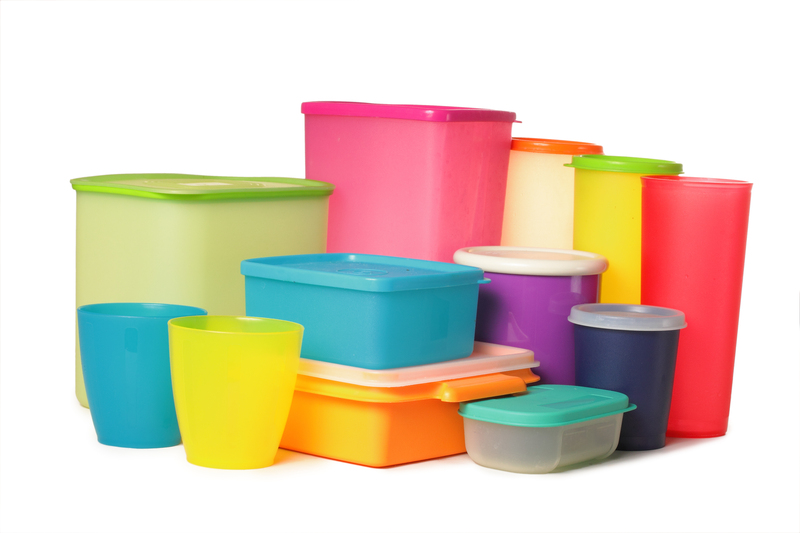Cost-Efficient Options for Managing Bulky Waste Items
Managing bulky waste items--such as old furniture, appliances, mattresses, or large electronics--can be both a logistical and a financial challenge for households and businesses alike. With growing concerns about environmental impact and cost-effectiveness, finding affordable and sustainable large waste disposal solutions has become a priority for many. In this comprehensive guide, we will explore various cost-efficient ways to handle bulky rubbish without breaking the bank, while also considering eco-friendly practices.

Understanding Bulky Waste and Its Challenges
Bulky waste refers to large household or commercial items that are too big or heavy for regular waste collection systems. Examples include:
- Sofas, armchairs, and other large furniture pieces
- Beds, mattresses, and box springs
- Large appliances (fridges, washing machines, ovens)
- Yard equipment and gardening tools
- Large televisions and electronics
The cost-efficient removal of bulky items presents multiple hurdles:
- High disposal fees at landfill sites
- Transport and labor costs
- Environmental regulations and recycling requirements
- Limited collection schedules from city services
However, with the right approach, you can save money and time while minimizing your environmental footprint.
1. Municipal Bulky Waste Collection Services
Most cities and municipalities offer some form of bulky item pickup service. This is often the most cost-efficient bulky waste management option for residents because:
- It may be free or subsidized as part of your regular waste management fee
- Scheduled pickups reduce the hassle of arranging separate transport
- Some towns offer annual or quarterly collection days for large items
Tips for Municipal Bulk Collection
- Check eligibility: Not all items are accepted--review your city's guidelines for accepted bulky items.
- Pre-book: Some cities require you to book a specific pickup slot, while others have fixed dates.
- Avoid fines: Make sure you follow all preparation and placement instructions to avoid penalties.
Pro tip: Combine several large items for pickup if your municipality allows, maximizing your value per collection.
2. Donate Items in Good Condition
Another excellent, budget-friendly way to dispose of large unwanted items is by donating them. Many charitable organizations accept gently used furniture and appliances, offering free pickup in some cases. Donating helps others, diverts waste from landfills, and reduces your costs.
Where to Donate Bulky Items
- Charities (e.g., Goodwill, Salvation Army, Habitat for Humanity ReStores)
- Churches and community shelters
- Local non-profits or thrift stores
Before arranging a donation, ensure the item is clean, functional, and safe. Some organizations may accept only specific pieces or brands, so always check their requirements in advance.
3. Sell or Give Away for Free
Turning your bulky waste into cash (or simply giving it away) is a win-win situation that's both cost-effective and sustainable. Through online marketplaces and community groups, you can often find a new home for your large unwanted items, reducing landfill waste and handling costs.
Best Platforms for Cash-Free Bulky Item Disposal
- Craigslist and Facebook Marketplace
- Nextdoor and local neighborhood apps
- Freecycle or similar "free item" listing sites
- Buy Nothing Project groups
List items with clear photos and accurate descriptions, and be upfront about any issues. Offering items for free often attracts quick pickups, meaning you avoid hauling fees entirely.
4. Engage Private Junk Removal Services
When municipal services aren't an option, or if you need rapid turnaround, private junk removal companies can help. While these services do charge a fee, you can reduce costs with smart strategies:
- Compare quotes from multiple companies--different firms may have varying pricing models based on volume, weight, or item type.
- Opt for curbside pickup rather than inside removal for a lower rate.
- Consolidate with neighbors--sharing a truck load can cut per-person costs.
- Seek discounts or promos--many companies offer reduced rates for seniors, veterans, or bulk orders.
Always ask about recycling procedures. Some reputable firms prioritize environmentally responsible disposal of bulky items, further lowering your environmental impact.
5. Hire a Roll-Off Dumpster
If you have multiple bulky items or are tackling a major cleanout, renting a roll-off container may be the most cost-efficient option. Mini dumpsters are dropped at your location and collected after you fill them, allowing you to dispose of waste at your own pace.
Tips to Save on Dumpster Rentals
- Select the right size to fit your needs without overpaying for unused space.
- Carefully load bulky items, breaking them down if possible to maximize space.
- Split rental costs with neighbors or friends who also have large items to dispose of.
- Book during off-peak seasons to secure better rates.
Check with your local authority for permits or restrictions on dumpster placement before booking.
6. Visit Your Local Transfer Station or Landfill
Self-hauling may be the cheapest method for managing bulky waste if you have access to a truck or trailer. Many municipalities have local transfer stations or landfills with special rates for residential drop-offs.
- Weigh fees: Some sites charge by item, weight, or load size--calculate your costs ahead of time.
- Combine trips: Coordinate with friends or neighbors to make the trip more economical.
- Recycle where possible: Ask about separated recycling for items like scrap metal, electronics, or mattresses to reduce disposal fees.
Bonus tip: Call ahead to confirm accepted items and operating hours, and always transport loads safely and securely.
7. Repurpose, Upcycle, or Dismantle
Getting creative with reusing bulky waste can be one of the most affordable and green options. With a little elbow grease, old furniture, doors, and appliances can be given new life as DIY projects.
Ideas for Repurposing Large Unwanted Items
- Turn wood furniture into shelving, planters, or storage boxes
- Convert old doors into headboards or tables
- Strip metal components from appliances for scrap recycling
- Use mattress springs for garden art or trellises
Even if you're not inclined towards DIY, dismantling bulky items can often reduce their size for easier (and cheaper) disposal through regular waste pickups or recycling centers.
8. Explore Community Clean-Up Days or Swap Events
Many neighborhoods and cities host annual bulky waste amnesty days, clean-ups, or swap meets. Participating in communal disposal events is often free or low-cost, while also promoting sustainability through item exchange or group recycling efforts.
- Look for upcoming dates on your city or county government website
- Join neighborhood social media groups for updates on local events
Some events even pair giveaway tables with waste collection, so you may find a new home for your large unwanted items before they're treated as waste.
The Environmental and Financial Benefits of Efficient Bulky Waste Management
Adopting cost-effective bulky waste solutions provides multiple benefits beyond just saving money:
- Reduces landfill pressure: Donation, repurposing, or responsible recycling diverts waste from landfills and reduces environmental impact.
- Boosts community welfare: Donating items helps those in need, while clean-up events strengthen neighborhood ties.
- Encourages recycling industries: Proper separation of metal, wood, and electronics supports a sustainable circular economy.
- Compliance with local laws: Many municipalities have regulations around large waste disposal; following correct channels avoids costly fines.
Most importantly, developing a plan for affordable bulky item removal helps prevent future clutter and makes the process less stressful the next time you have to dispose of large objects.

FAQ: Cost-Efficient Bulky Waste Disposal
Q: What's the cheapest way to get rid of large furniture?
A: Start by checking your city's bulk waste pickup schedule. If unavailable, try listing your item for free online or donating to a local charity before considering paid options.
Q: Can I leave bulky items by the curb?
A: Only if your municipality has scheduled pickups or collection days. Otherwise, abandoning items could result in hefty fines.
Q: Are junk removal services worth the money?
A: For large quantities or inaccessible items, yes. But compare prices, ask about recycling, and consider sharing costs with neighbors to lower expenses.
Q: How can I dispose of old mattresses cheaply?
A: Some cities provide free mattress collection or recycling programs. Alternatively, donate if it's in good condition or check for local recycling centers.
Q: What happens to donated bulky items?
A: Charities typically resell, reuse, or recycle donated goods, extending the lifecycle of your unwanted items and supporting community programs.
Conclusion: Efficient Large Waste Disposal for Every Budget
Avoiding high costs and environmental harm when managing bulky waste items is easier than you think. By combining municipal programs, donation, resale, and community events, you can find the best cost-efficient option for your situation. Always consider your local resources first, maximize reuse and recycling, and coordinate with others to spread costs whenever possible.
With planning and creativity, you can clear out unwanted large items affordably and responsibly, ensuring a cleaner home and a greener planet for everyone.
